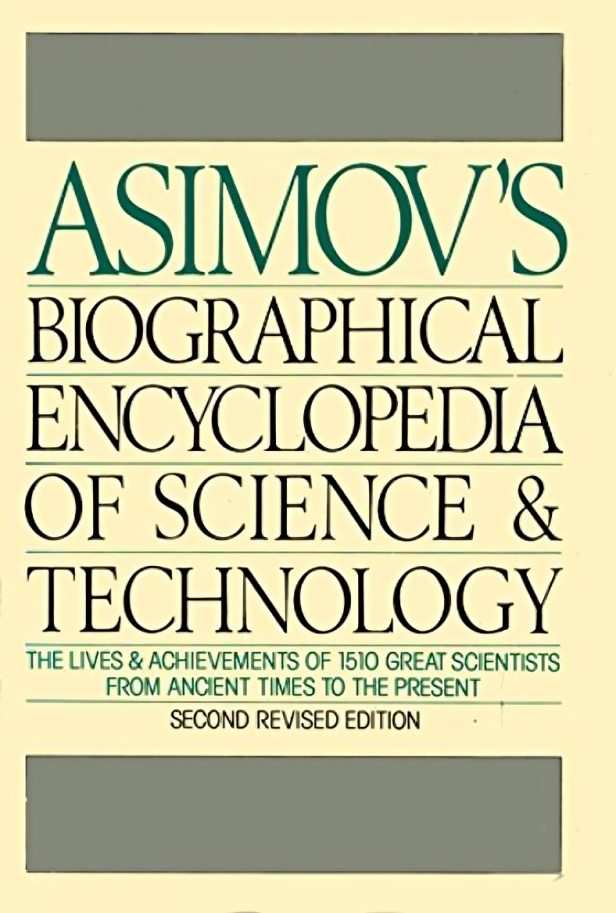Isaac Asimov, a name synonymous with science fiction, was not only a prolific writer of novels and short stories but also an exceptionally knowledgeable commentator on the history of science. His “Biographical Encyclopedia of Science and Technology,” though perhaps less well-known than his robot or Foundation series, is a testament to his deep understanding and appreciation of scientific progress.
The ambitious tome is a detailed catalog that chronicles the lives and achievements of approximately a thousand scientists. These biographical sketches span from antiquity to the time of the book’s publication, creating a timeline of scientific exploration and discovery that is unparalleled in its breadth.
The most striking feature of this encyclopedia is how it contextualizes each scientist’s contributions within the larger framework of scientific development. Each profile not simply lists dates and discoveries; it links individual achievements to the overall structure of scientific thought and progress. This interconnectivity between the sciences and scientists across different eras serves as a reminder of the collective endeavor that scientific inquiry truly is.
The profiles, though concise, provide more than just factual summaries. They offer insights into the often convoluted paths of scientific achievement and highlight the creative and sometimes serendipitous nature of discovery. It’s a valuable reference book for anyone interested in the history of science and the remarkable individuals who have contributed to it.
Asimov’s approach to the biographical format is not dry, as one might expect from an encyclopedia. Instead, there’s a clear effort to keep the material accessible and engaging. Nonetheless, it cannot be denied that the sheer volume of content can be overwhelming. This is a book best digested in small portions, offering bite-sized enlightenment rather than extended narrative pleasure.
Another aspect of Asimov’s writing that deserves praise is his ability to evaluate scientific work without bias. His summaries are not laden with personal opinions but rather strive to present a fair assessment of each scientist’s impact on their field.
While the book‘s last edition was published decades ago, it still stands as a significant resource today. The historical perspective it provides is valuable not only to those specifically interested in science but also to readers keen on understanding how our current technological world came to be.
Where it falls short, however, is in the inevitable absence of more recent scientific figures and breakthroughs — a limitation of any historical record that ceases to update. Nonetheless, for its time and even today, it provides a sturdy foundation upon which to understand the ancestry of scientific accomplishment.
“Asimov’s Biographical Encyclopedia of Science and Technology” is more than a mere collection of bios; it is an ode to humanity’s quest for knowledge. Its expansive vision makes it a treasure trove for both academic and personal libraries. Yet, it should not be regarded as a definitive end but as a starting point for anyone looking to explore the rich tapestry of our scientific heritage.
Asimov’s Biographical Encyclopedia of Science and Technology earns a solid recommendation for its meticulous and comprehensive accounting of science history. Isaac Asimov’s legendary storytelling proficiency may shine brightest in his fiction, but his passion for science itself is nowhere more evident than in this encyclopedic homage to the trailblazers of technology and discovery.







